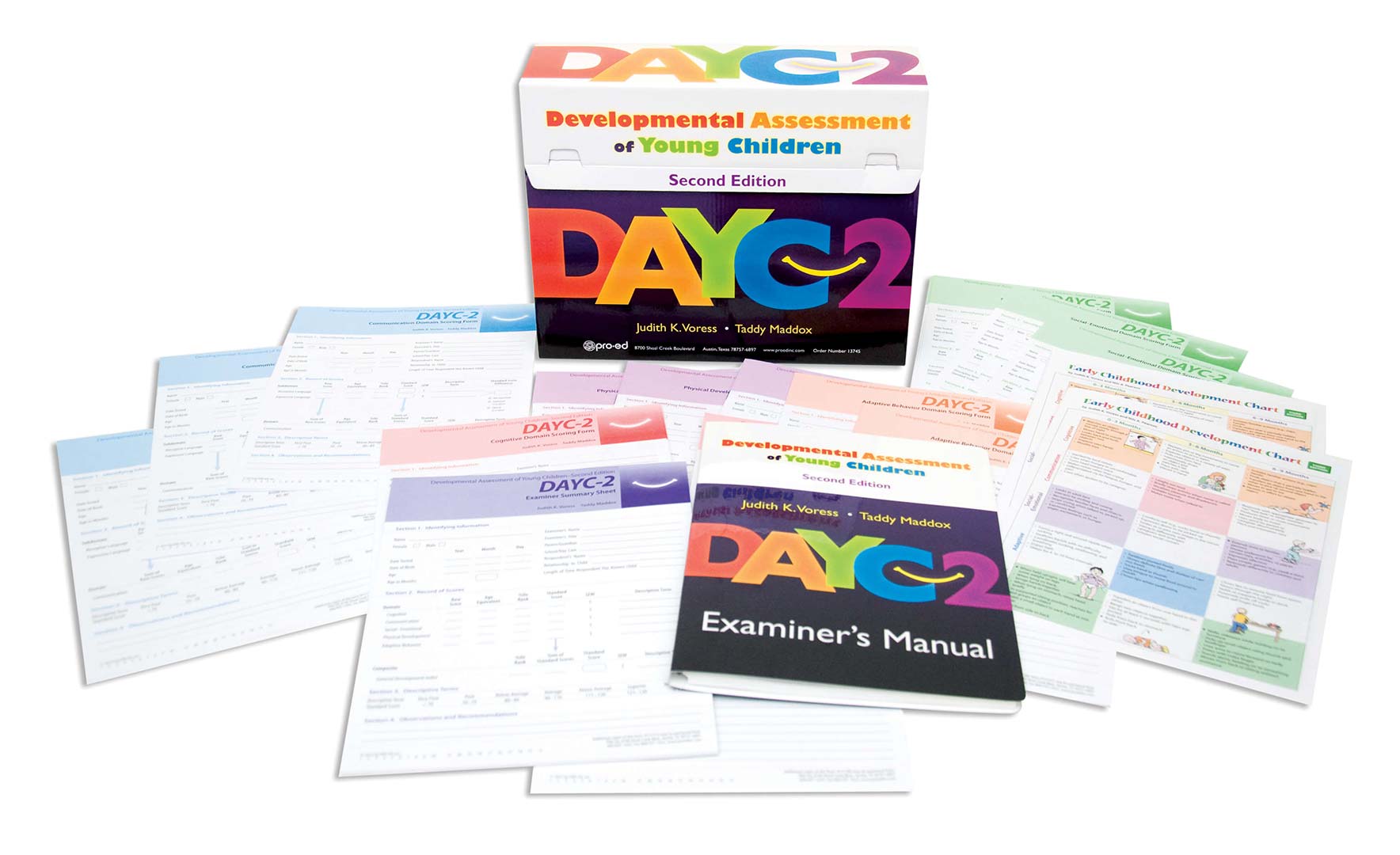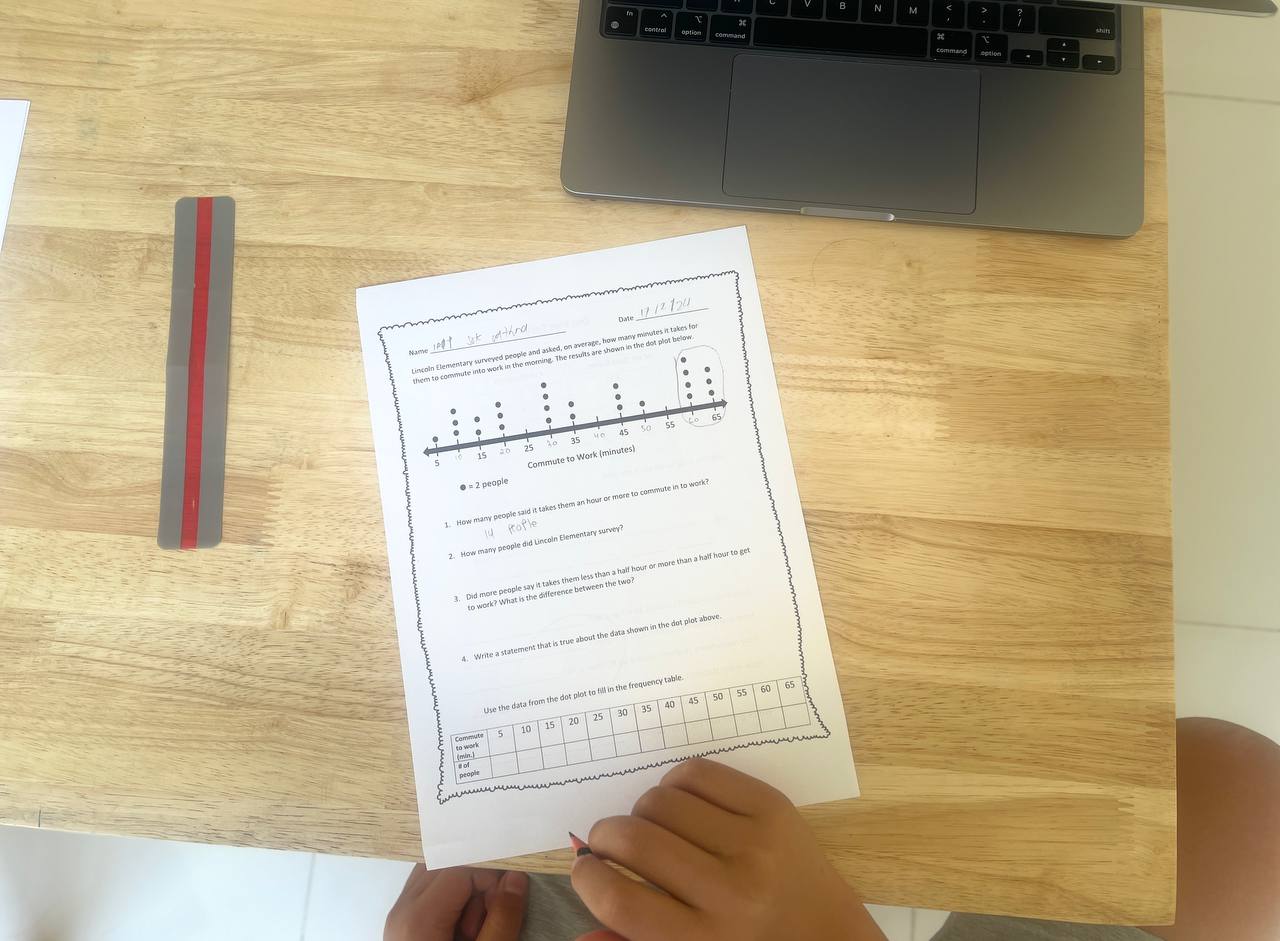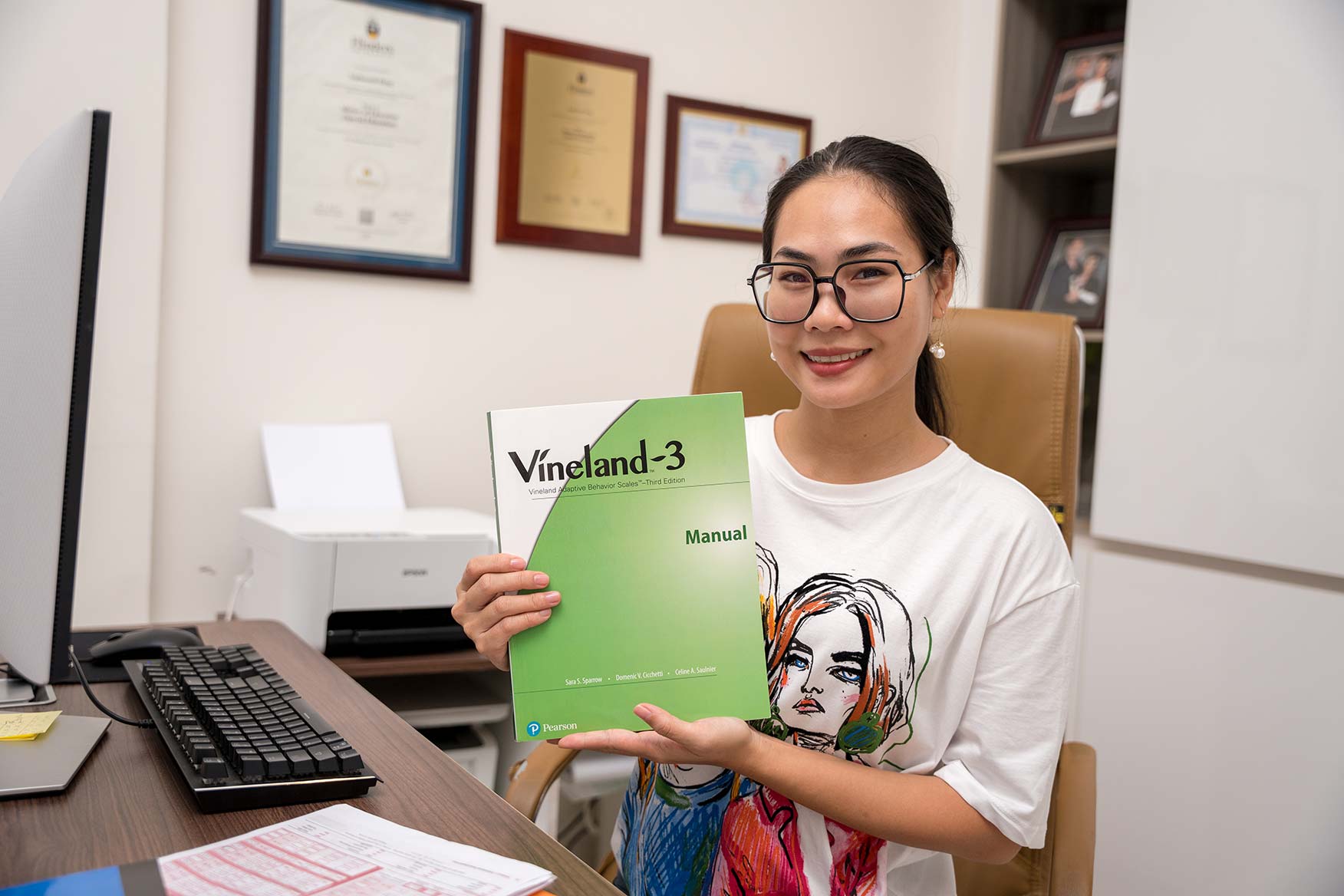The Developmental Assessment of Young Children, Second Edition (DAYC-2) is a standardized assessment tool used to identify children from birth to 5 years and 11 months of age who may be experiencing developmental delays. It is a comprehensive assessment that covers five domains of development:
- Cognition: This domain includes skills such as problem-solving, reasoning, and learning.
- Communication: This domain includes skills such as understanding and using language, both spoken and written.
- Social-Emotional Development: This domain includes skills such as interacting with others, managing emotions, and developing self-awareness.
- Physical Development: This domain includes skills such as fine motor skills (e.g., writing and drawing) and gross motor skills (e.g., running and jumping).
- Adaptive Behavior: This domain includes skills such as self-care, play, and independent functioning.
The DAYC-2 is used by a variety of professionals, including early childhood educators, special education teachers, and developmental therapists. It can be used to identify children who may need additional support, to develop individualized education plans (IEPs), and to track progress over time.
How is the DAYC-2 administered?
The DAYC-2 is administered by a qualified professional, such as a psychologist, speech-language pathologist, or occupational therapist. The assessment typically takes 1-2 hours to complete and is conducted in a child-friendly environment.
The assessment consists of three components:
- Observation: The examiner observes the child during play and other activities.
- Parent/caregiver interview: The examiner interviews the child’s parent(s) or caregiver(s) about the child’s development and behavior.
- Direct assessment: The examiner directly assesses the child’s skills in each of the five developmental domains.
How are DAYC-2 scores interpreted?
DAYC-2 scores are interpreted by comparing the child’s performance to the performance of a nationally representative sample of children of the same age. Children who score below the 15th percentile in any domain are considered to have a developmental delay in that domain.
However, it is important to note that DAYC-2 scores are just one piece of information that is considered when making decisions about a child’s development. Other factors, such as the child’s medical history, family history, and social-emotional functioning, must also be considered.
What are the benefits of using the DAYC-2?
The DAYC-2 is a widely used and well-respected developmental assessment tool. It offers a number of benefits, including:
- Comprehensiveness: The DAYC-2 assesses all five domains of development, which provides a comprehensive picture of the child’s skills.
- Standardization: The DAYC-2 is standardized, which means that the scores can be compared to the scores of other children of the same age. This makes it possible to identify children who are experiencing developmental delays.
- Reliability: The DAYC-2 is a reliable assessment, which means that the scores are consistent over time. This makes it possible to track progress over time.
- Validity: The DAYC-2 is a valid assessment, which means that it measures what it is intended to measure. This means that the results of the assessment can be used to make informed decisions about the child’s development.
If your child is referred for a DAYC-2 assessment, what should you expect?
If your child is referred for a DAYC-2 assessment, the first step is to schedule an appointment with a qualified professional. The professional will begin by asking you questions about your child’s development and behavior. They will then observe your child during play and other activities. Finally, they will directly assess your child’s skills in each of the five developmental domains.
After the assessment is complete, the professional will provide you with a feedback report. The report will include your child’s scores in each domain, as well as recommendations for further assessment or intervention, if needed.





Leave A Comment